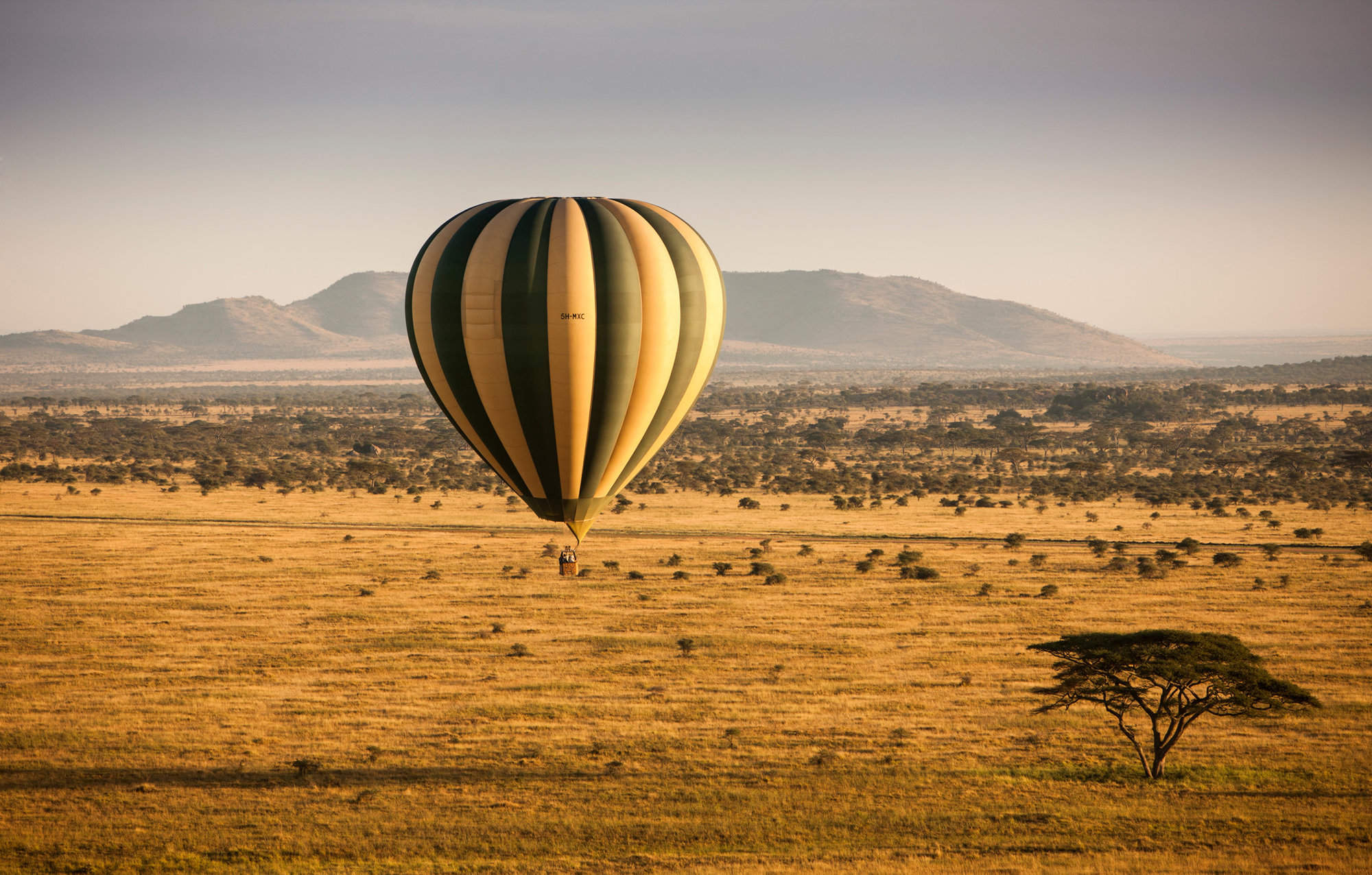Tanzania: Weather & climate
The best time to visit Tanzania
We're often asked "When is the best time to go to Tanzania", and the answer is often complex. It will depend on many things including your interests, exactly where you want to visit and why you're travelling. One person's best time can be another's worst. The main factors to influence this are:The best time to visit Tanzania: weather and climate
Here is a broad guide to the climate of Tanzania – although remember that this comes from records and experience, not from a crystal ball. Weather patterns across Africa are becoming increasingly unpredictable, probably due to global warming; we're seeing downpours in the middle of deserts and damaging droughts when rains should be falling.Just south of the equator, Tanzania is huge and its sheer size means that the climate varies considerably within it. However, generally the main rainy season, or the 'long rains', lasts during about March, April and May. Afternoon tropical downpours are the norm – which are heavier and more predictable beside the coast and on the islands. The humidity is high and daily temperatures reach the low-mid 30°s.
The long dry season lasts throughout June, July, August, September and October is when rainfall is unusual, even on the islands. Temperatures vary hugely with altitude and location, but it's usually a fine, clear sky and sunny weather – it's a great time to visit Tanzania. During November and December there's another rainy season: the 'short rains'. These are much lighter than the main rains and less reliable.
If it has rained during the short rains, then it normally dries up for a few months, January and February, which is Tanzania's 'short dry season', before starting to rain again in earnest in March.
The best time to see the great wildebeest migration
Many travellers visit Tanzania to see the Serengeti's great wildebeest migration. Linked to the rainfall, this stunning migration of thousands of wildebeest – accompanied by zebra, gazelle, eland and impala – takes place throughout the year, and follows a fairly predictable pattern, as the wildebeest are constantly seeking fresh grazing and water.Having said that, the wildebeest migration happens all year – the migration can be found during any given month; you just need to know where to look! The question should really be about the 'best places' to see them during a given time of the year – and when visiting them is most enjoyable.
For more information on when and where to see the Serengeti's great wildebeest migration, ask us about details, or click on the link below:
► Serengeti's wildebeest migration
This map tracks the wildebeest month-by-month, and shows precisely where they are during any given time of the year. In addition, a detailed description helps to understand the Serengeti's great wildebeest migration.
Weather in other African countries
For comparison, see similar climate charts and information for our other African destinations:► Botswana climate – Slightly different weather pattern from Tanzania.
► Kenya climate – Fairly similar weather pattern to Tanzania's.
► Malawi climate – Slightly different weather pattern from Tanzania with a shorter rainy season.
► Mozambique climate –Slightly different weather pattern from Tanzania’s.
► Namibia climate – Different weather pattern from Tanzania’s, and much drier.
► Rwanda climate – Different weather pattern from Tanzania’s.
► Seychelles climate – Very different weather pattern from Tanzania’s.
► Cape of South Africa climate – Very different weather pattern from Tanzania’s.
► Zambia climate – Similar weather pattern to Tanzania’s, with just one, shorter rainy season.
► Zanzibar climate – Part of Tanzania with a similar weather pattern to the mainland.
► Zimbabwe climate – Different weather pattern from Tanzania’s.
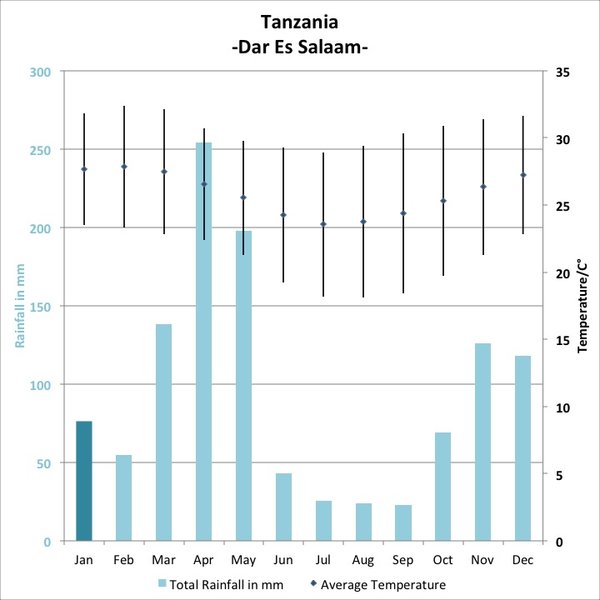











January: the start of the ‘short dry season’.
February: the hottest month, and relatively dry, just before the main rains start.
March: the main and long wet season starts.
April: the wettest month of the year with a high humidity level.
May: very rainy month; afternoon downpours are to be expected.
June: the long dry seasons begins; weather is usually sunny with clear skies.
July: the landscape is beautiful green and lush; Tanzania’s best time.
August: lovely warm days, cooler nights and normally very little rain.
September: dry and lovely, similar to July and August.
October: warm and clear month, with rain possible at the end of the month.
November: start of the 'short rainy season'.
December: temperatures gradually edge up during the second month of the ‘short rains’.
Our top picks for holidays to Tanzania
We'll always tailor-make your safari for you. Here are some of our favourites to inspire you.
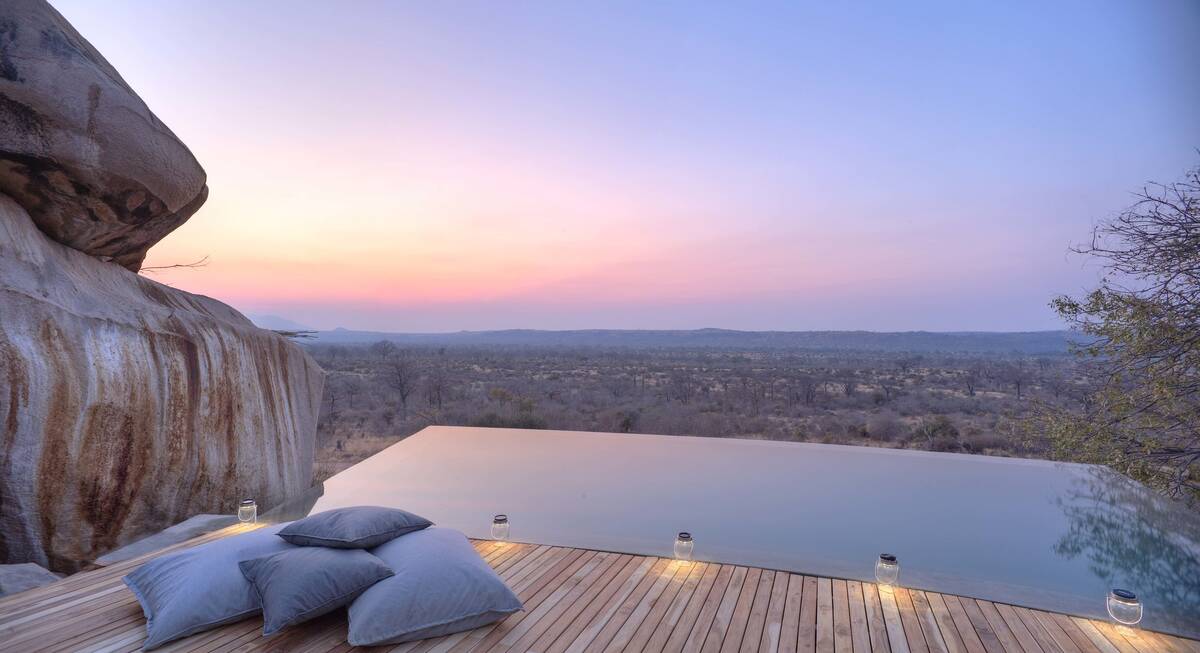
Marabou Stork Fly-in Safari
13 days • 5 locations
KILIMANJARO AIRPORT TO DAR ES SALAAM AIRPORT
Four luxurious camps enable exploration of Tanzania’s north and southern regions. With a range of land- and water-based activities available throughout, decidedly comfortable accommodation and applicable long-stay discounts, this adventurous safari is excellent value.
US$17,640 - US$25,560 per person
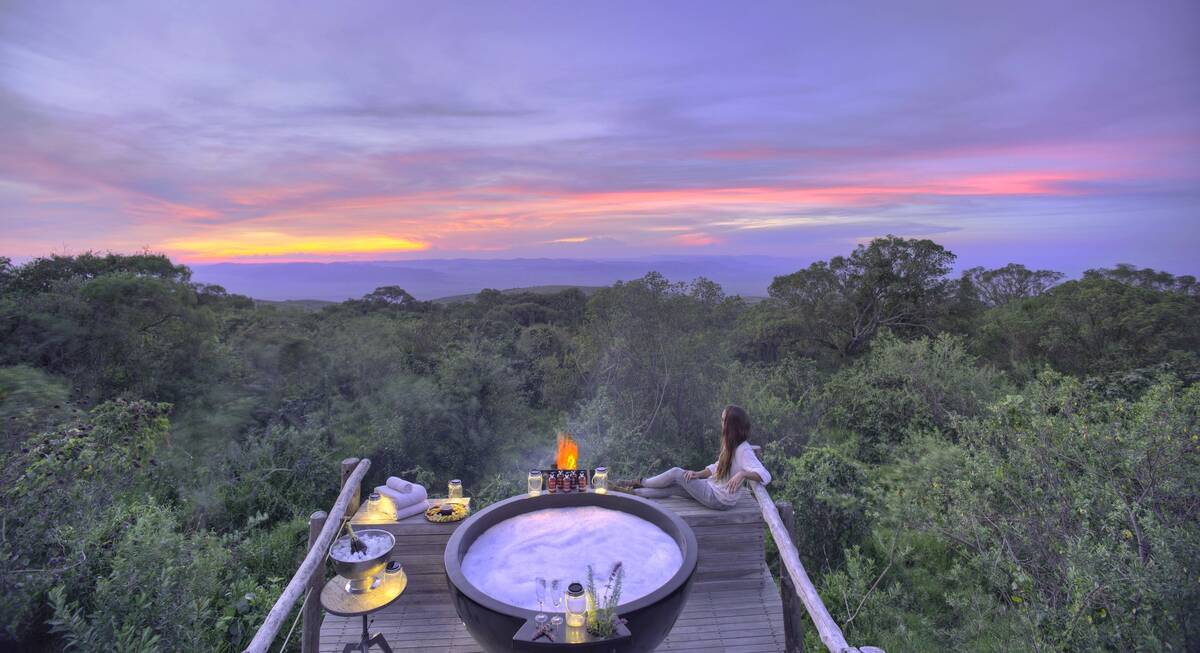
Flufftail Guided Safari
10 days • 3 locations
KILIMANJARO AIRPORT TO KILIMANJARO AIRPORT
Stay in three unique camps as you safari across the Ngorongoro Crater and the iconic Serengeti Plains with your private guide and 4WD vehicle: a trip of comfort and autonomy, with excellent wildlife.
US$13,020 - US$18,460 per person
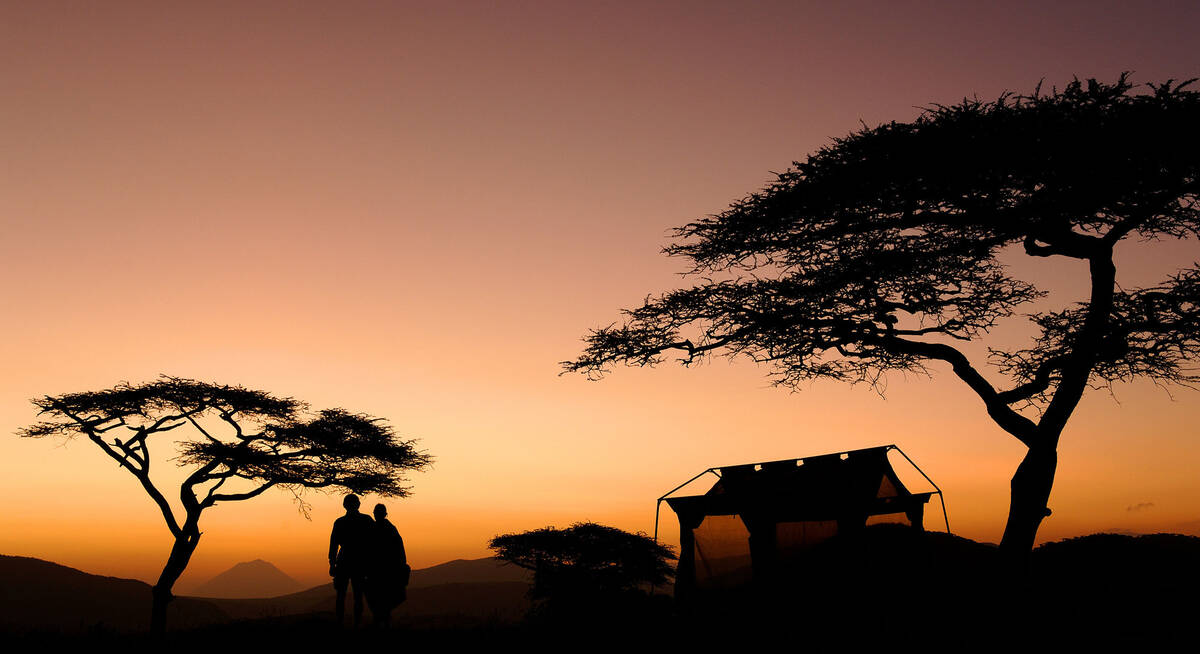
Firefinch Drive-Fly Safari
9 days • 3 locations
KILIMANJARO AIRPORT TO KILIMANJARO AIRPORT
Enjoy a combination of privately guided and shared game drives during this good-value exploration of northern Tanzania. Explore game-dense regions from three comfortable bases which offer a variety of activities.
US$8,840 - US$10,760 per person
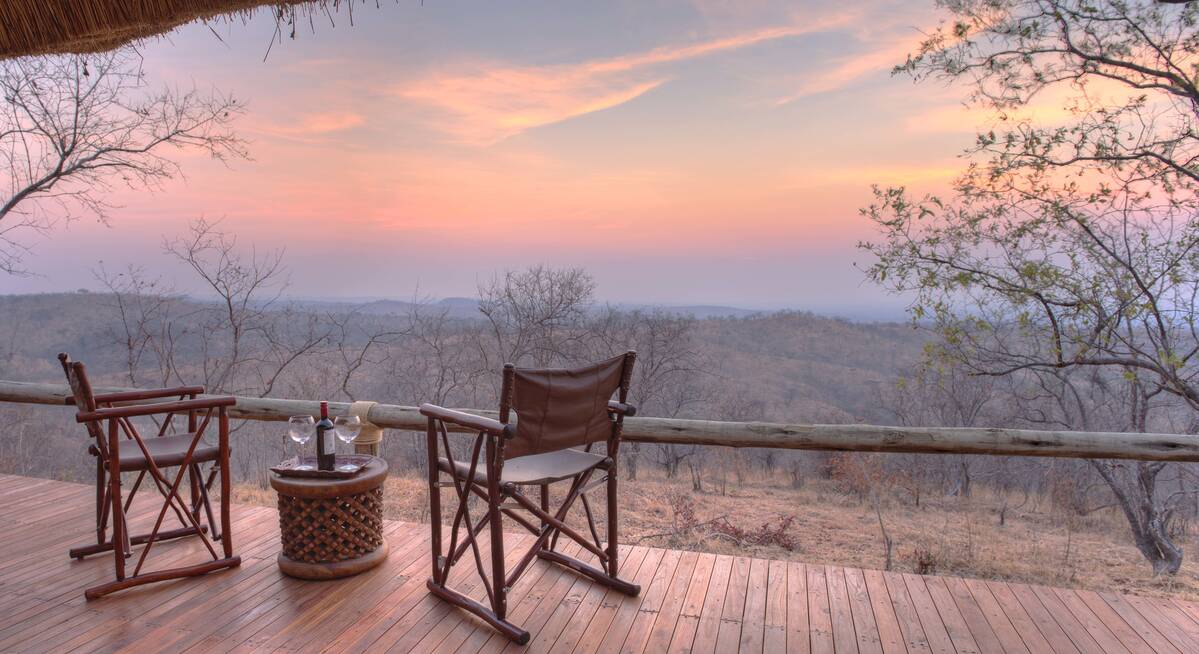
Jackal Fly-in Safari
8 days • 2 locations
DAR ES SALAAM AIRPORT TO DAR ES SALAAM AIRPORT
Enjoy a range of activities on this luxury fly-in safari. Explore the remoter regions of Ruaha National Park and Nyerere National Park with phenomenal guides during stays at two impressively comfortable camps that remain perfectly in keeping with their surroundings.
US$9,340 - US$12,080 per person
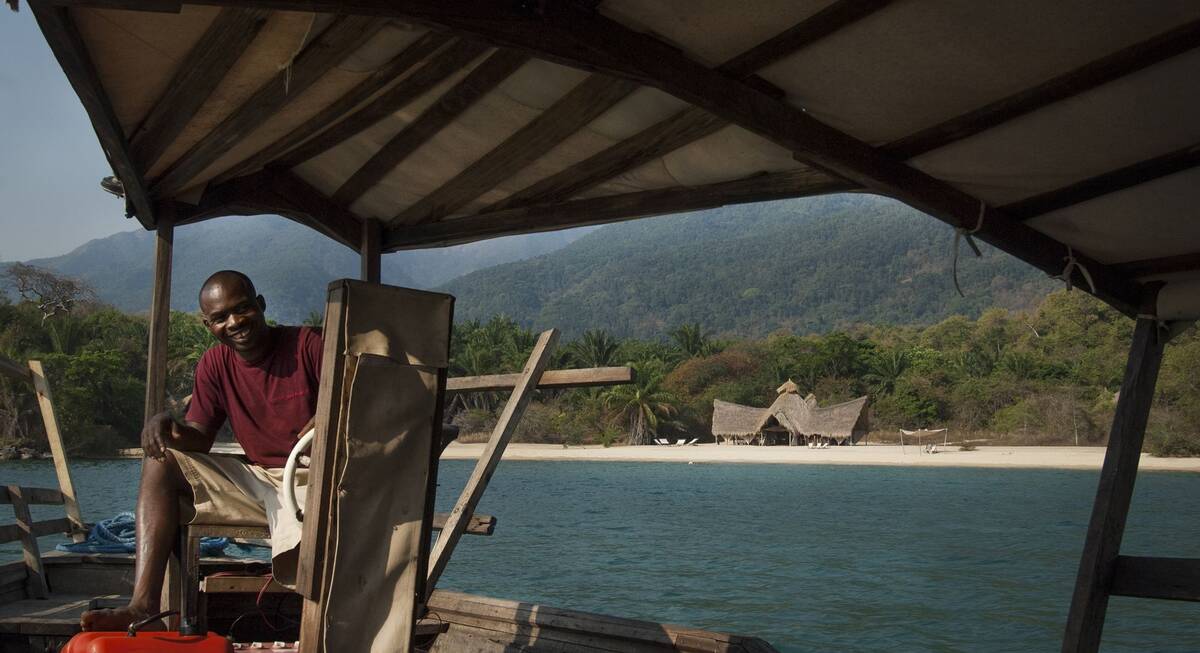
Chimpanzee Fly-in Safari
8 days • 3 locations
KILIMANJARO AIRPORT TO KILIMANJARO AIRPORT
Combining two of the remotest parks in Tanzania, this safari can deliver extraordinary wildlife viewing in Katavi, and East Africa's best chimp treks, on the shores of Lake Tanganyika.
US$13,190 - US$16,530 per person

Tinkerbird Fly-in Safari
8 days • 4 locations
KILIMANJARO AIRPORT TO KILIMANJARO AIRPORT
Explore Tanzania’s famous northern circuit in Tarangire National Park, the Ngorongoro Conservation Area and the Serengeti National Park. Four smart sister camps offer a high level of care, first-class guiding and a wide range of activities.
US$9,640 - US$14,140 per person

Secretary Bird Fly-in Safari
8 days • 4 locations
KILIMANJARO AIRPORT TO KILIMANJARO AIRPORT
Chosen for comfort and relaxation as much as for its range of activities, this safari makes for a leisurely trip featuring stunning accommodation and swift access to many of northern Tanzania’s best wildlife regions.
US$12,990 - US$18,080 per person

Topi Fly-in Safari
7 days • 2 locations
DAR ES SALAAM AIRPORT TO DAR ES SALAAM AIRPORT
Explore Nyerere National Park and Ruaha National Park from two luxurious, colonially styled camps. Chosen for their access to good game viewing and thrilling remoteness, these camps also offer a range of varied safari activities.
US$6,870 - US$7,420 per person
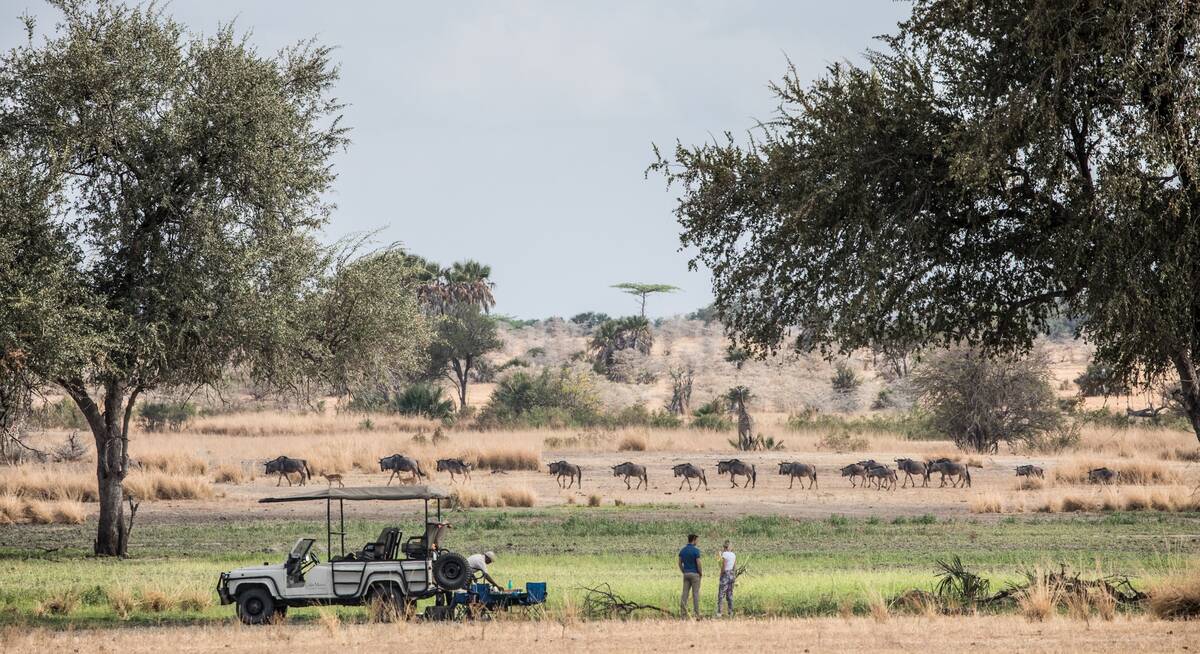
Spotted Hyena Fly-in Safari
7 days • 2 locations
DAR ES SALAAM AIRPORT TO DAR ES SALAAM AIRPORT
Stay in one of Nyerere National Park's best safari camps before experiencing a truly authentic tented camp in Ruaha. Remote locations, superb guiding and a range of activities await guests during this comfortable fly-in safari.
US$7,400 - US$10,300 per person

Fringe-eared Oryx Fly-in Safari
7 days • 3 locations
KILIMANJARO AIRPORT TO KILIMANJARO AIRPORT
Stay in three superbly positioned camps during this exploration of Tanzania’s famous northern circuit. Excellent views over the surrounding areas, relatively remote locations and game-rich habitat make for an exciting and varied safari experience.
US$7,300 - US$14,860 per person

Looking for inspiration on where to travel next?
Visit our trip chooser to explore your options and find inspiration for your perfect African adventure
Inspire me